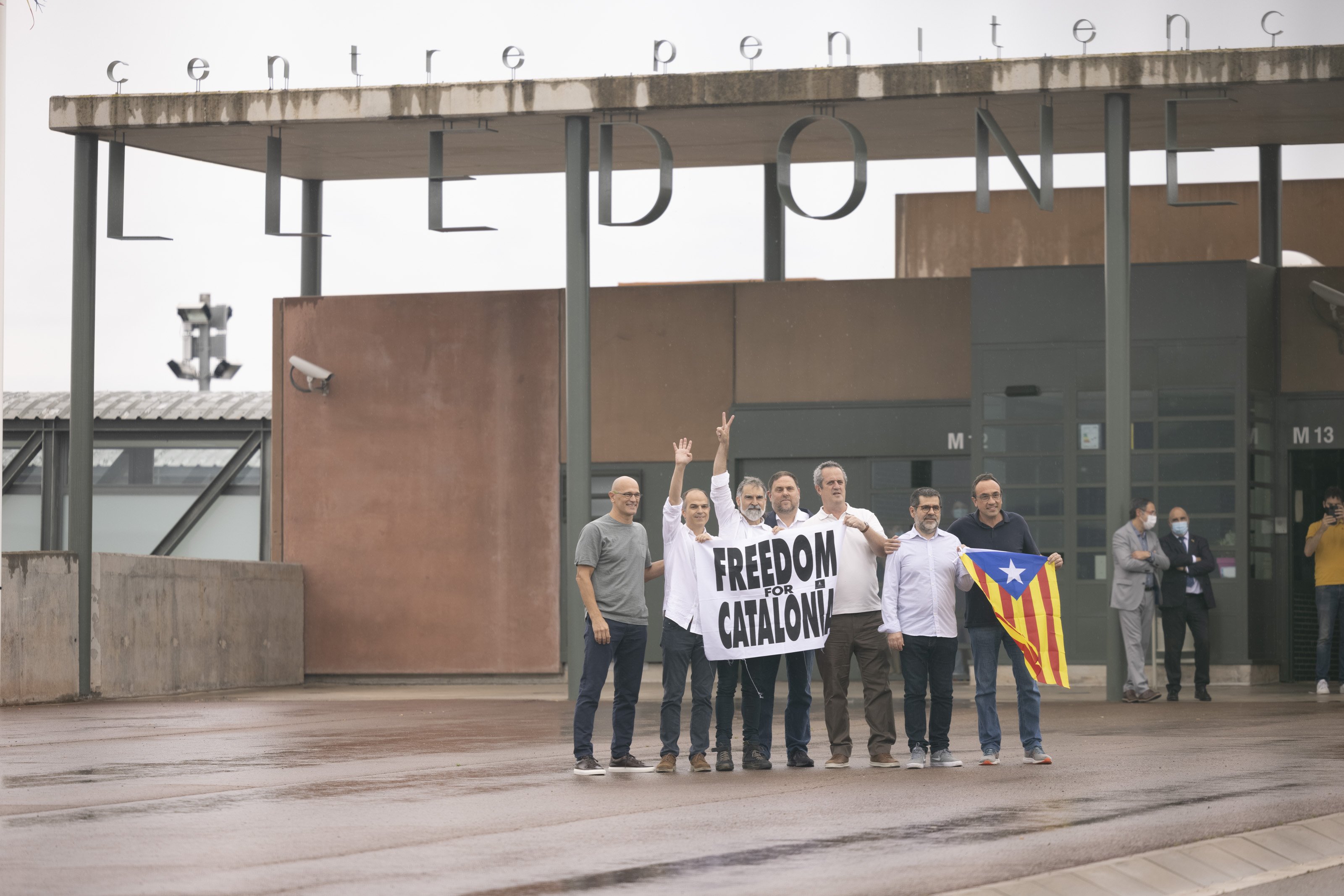An administrative disputes chamber of the Spanish Supreme Court decided on Tuesday to reject the petition submitted by, on the one hand, three leaders of the Ciudadanos (Cs) party, and on the other, their far-right rivals Vox, to impose interim measures of suspending the pardons for the nine pro-independence prisoners who were released from prison on June 23rd.
In two rulings, explained in documents of 21 and 24 pages respectively, the court considered that the circumstances that would be required to adopt such an interim measure do not apply while the substantive appeals that both parties have filed against the pardons are being processed.
On June 28th, the judges already took a first decision in this regard when they refused to leave the pardons without effect as an urgent interim measure, that is, without hearing the point of view of the parties in the case. They have now maintained the same criterion after hearing the arguments of the defence lawyers, the state solicitors and the public prosecutors, because they consider that "the circumstances" required to impose interim measures do not exist, but they have not yet entered into the substance of the appeal proper.
"The application of the pardon, and the decision not to suspend it, is not an impediment to the fulfillment in due course of the pending prison sentence, if so declared in a possible ruling favourable to the claims of the appellants, and thus the execution of the pardon does not produce consequences or situations that would be difficult to revert and that could mean that the legitimate purpose of the appeal was lost", the judges emphasized.
"On the other hand," added the court, "in contrast to other conflicting interests that the party has not properly assessed, the suspension of the pardon could lead to situations detrimental and irreversible to the pardons if, as desired by the appellant, the [pardoned leaders] were to continue to serve a custodial sentence which might eventually be pardoned."
Thus, the chamber concluded that the weighting of the conflicting interests meant that the suspension of the pardon, as requested by the appellants, could not be granted. In response to the interim suspension requested, the state soliticitors argued that the appellants lacked active legitimacy to file appeals against the royal decrees of the pardons.
Again, the Supreme Court did not consider it appropriate to rule at this time on whether or not this lack of legitimacy exists, as the ruling on legitimacy does not fall within the scope of the resolution of the demand for interim measures.

